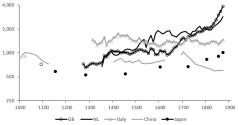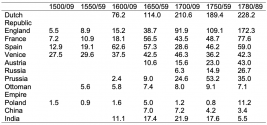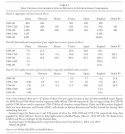The talk about making a separate capital not to be subject to local interests, to me, is bunk. Typically the countries with separate capitals are among the most corrupt of all. The political class gets so totally separated from the actual economic activity of the country they live in a bubble and get easily influenced with little concern for how most people live their own lives. Brazil is a good example of this. The US even has institutionalized lobbying (legalized corruption) and local lobby group offices in the capital. Putting the capital in the geographical center is also nonsense.
You've got to separate cause and effect. A small country has little need for a separate capital to diffuse local versus distant interests.
Larger countries do tend to be more corrupt, because they have to have an extra layer of distant government on top.
But larger countries have other advantages, like a larger single market and scale efficiencies.
At best you might make a point for putting it in the center of the population distribution I think.
As I said, the shortest travel time for the entire population. That is better than the weighted centre of the population distribution.
You might claim that government offices are always a drain on capital, but putting them in the middle of nowhere and requiring a lot of extra facilities which would not be required and would be shared otherwise (schools, hospitals, etc) increases the drag even more.
Look at a map of Hubei. No matter where you put a new capital, it is still going to be relatively close to a significant city.
And a new political centre will inevitably attract new educational facilities and companies looking for new greenfield expansion locations.
Come to think of it, it would be an opportunity to develop universities funded by the central government.
At the moment, the best universities in China all discriminate in favour of local residents.
There is no good university which treats all applicants equally no matter which province they are from.




